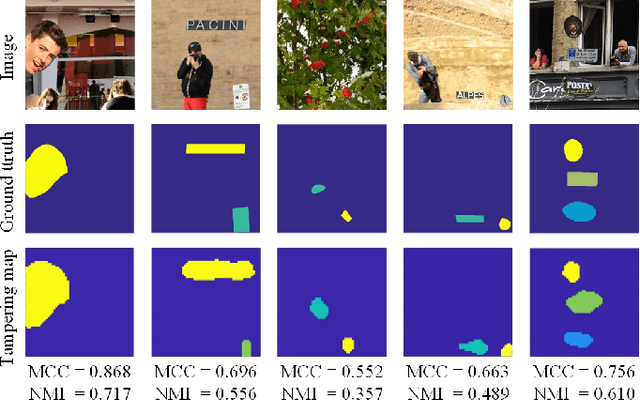Image Splicing Detection, Localization and Attribution via JPEG Primary Quantization Matrix Estimation and Clustering
Paper and Code
Feb 02, 2021



Detection of inconsistencies of double JPEG artefacts across different image regions is often used to detect local image manipulations, like image splicing, and to localize them. In this paper, we move one step further, proposing an end-to-end system that, in addition to detecting and localizing spliced regions, can also distinguish regions coming from different donor images. We assume that both the spliced regions and the background image have undergone a double JPEG compression, and use a local estimate of the primary quantization matrix to distinguish between spliced regions taken from different sources. To do so, we cluster the image blocks according to the estimated primary quantization matrix and refine the result by means of morphological reconstruction. The proposed method can work in a wide variety of settings including aligned and non-aligned double JPEG compression, and regardless of whether the second compression is stronger or weaker than the first one. We validated the proposed approach by means of extensive experiments showing its superior performance with respect to baseline methods working in similar conditions.
 Add to Chrome
Add to Chrome Add to Firefox
Add to Firefox Add to Edge
Add to Edge